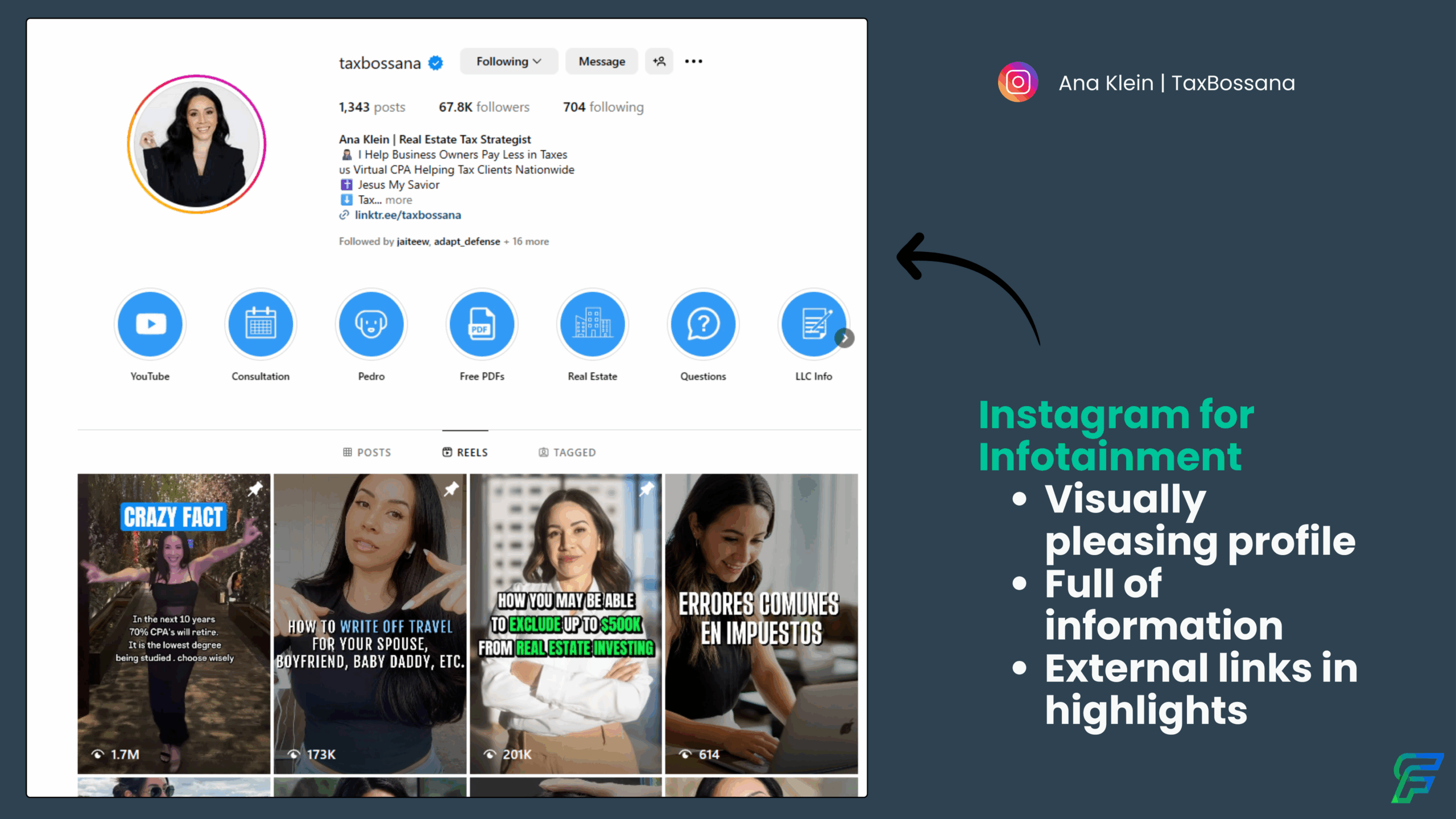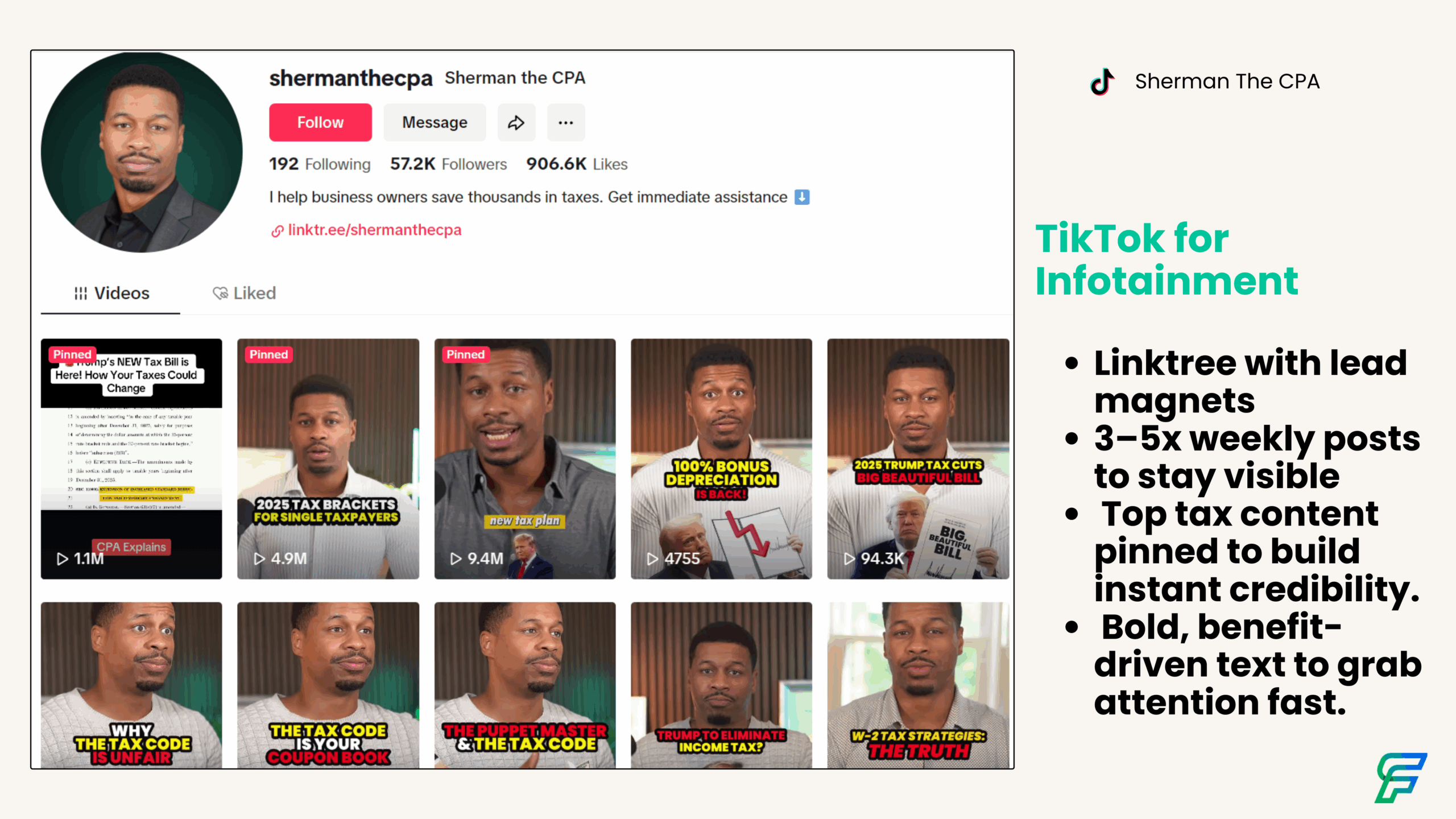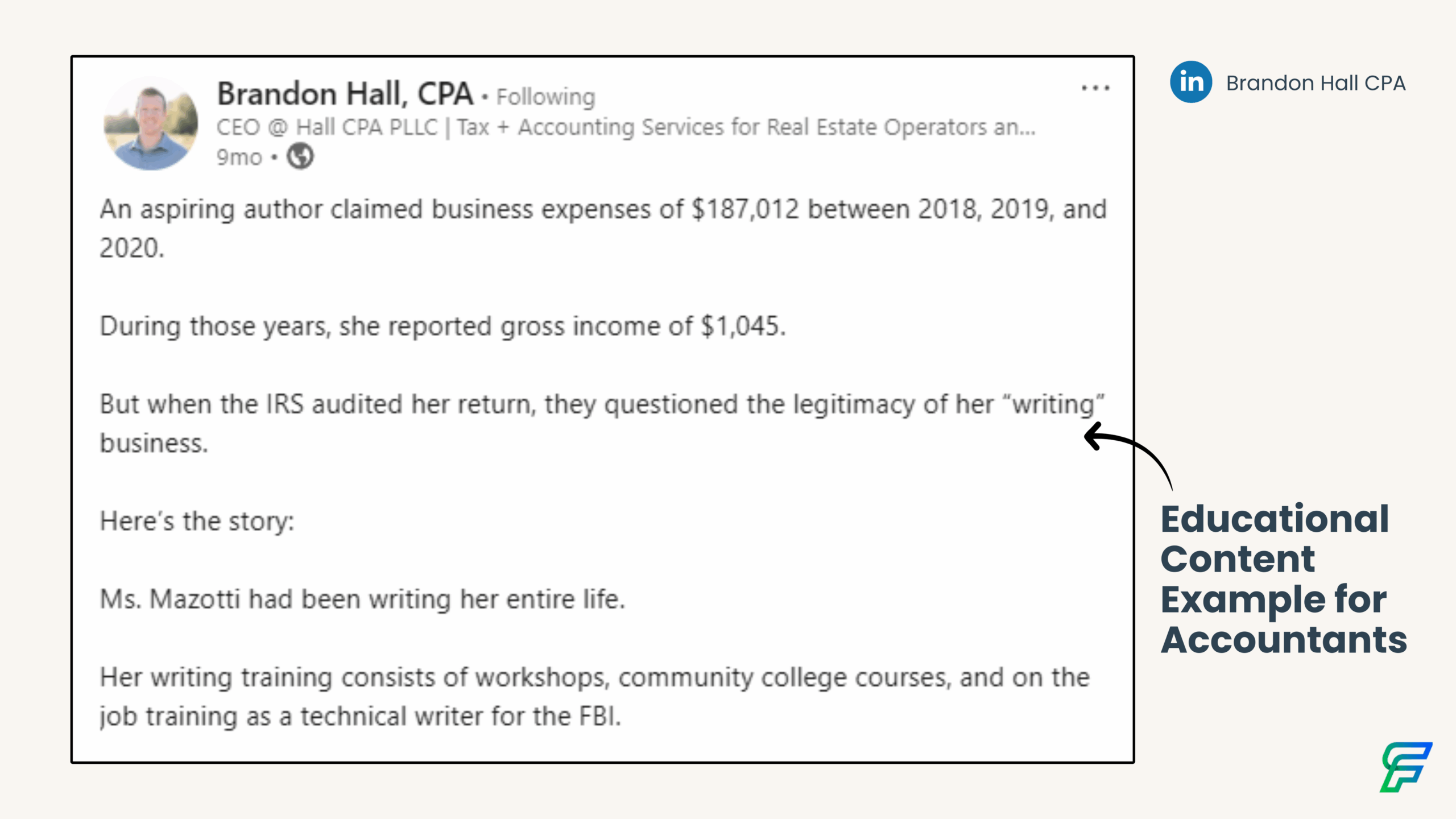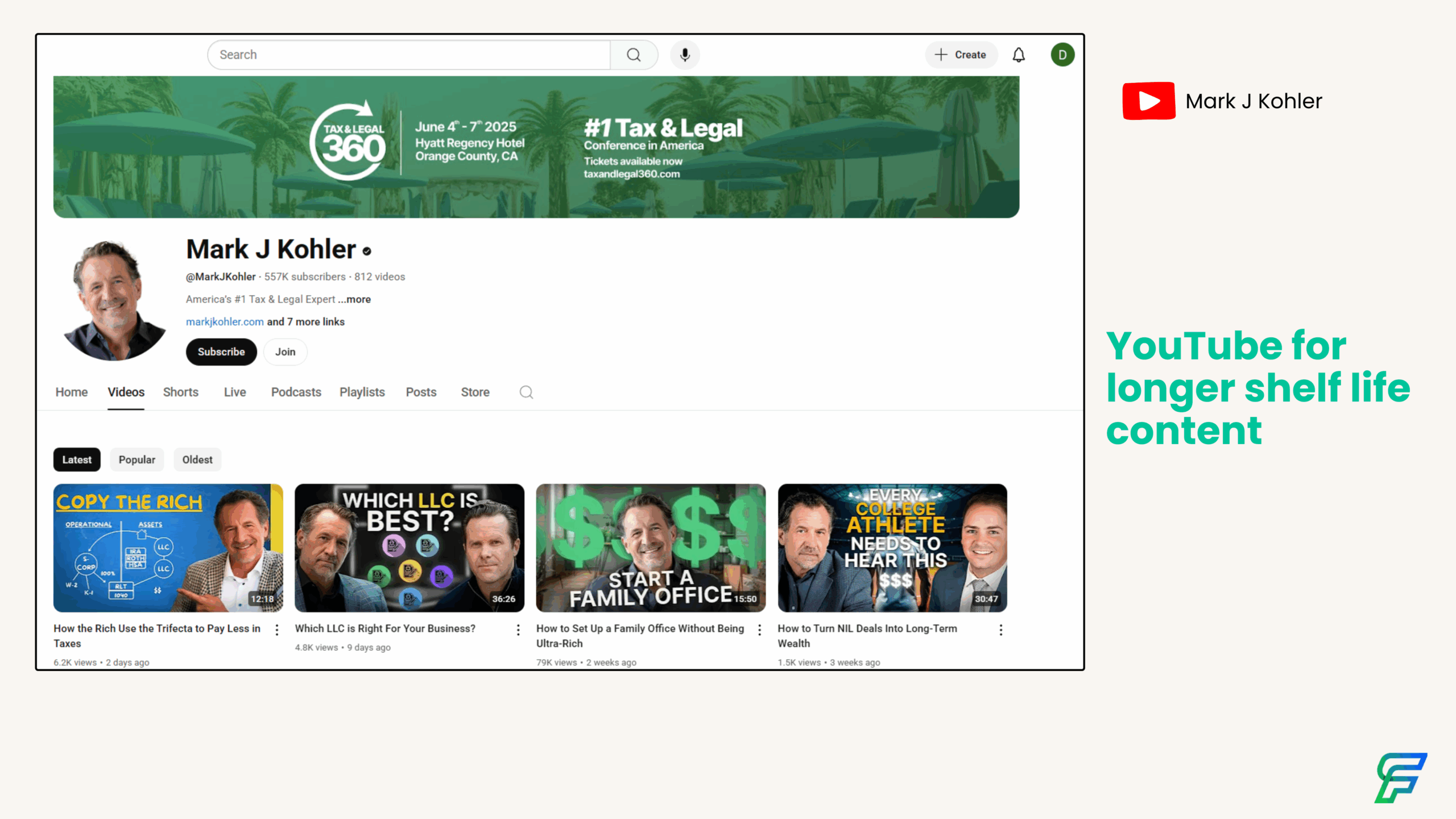
Why Tiered Pricing Strategy is a must for Accounting Firms (+Template Inside)
Tiered pricing gives accounting firms a flexible, confident way to price their services and raise fees without fear. Template included.

When it comes to marketing for accountants, many firms are still stuck in the past.
Referrals, local ads, or attending the occasional networking event once worked. But no more. Today, clients are scrolling and looking for information on digital platforms. They’re on platforms like LinkedIn, YouTube, and Instagram, looking for advice, insights, and trustworthy experts. That’s where social media for accountants makes a real difference.

The eyeballs are on social media platforms, and it is super clear with data on the monthly active users on respective platforms. Whether you’re a solo CPA or running a small firm, the right social media strategy can turn your posts into touchpoints that build trust and generate leads. This blog is divided into two parts, answering two main questions:
A) How, and B) Where
No vague advice. Just clear, actionable social media tips for accountants based on what has already worked for 50+ accounting firms I have worked with. Want me to share those tips on a 1:1 discovery call? Click here to book a preferred time slot.
But if you want to know more about social media landscape, continue reading.
By the end of this blog, you’ll know-
And there’s a bonus at the end to help you kickstart social media marketing for your accounting firm.
Let’s begin.
While scrolling through Reddit recently, I came across a thread where a few accountants were debating whether social media even works. It’s a fair question, but one I have a different perspective on.
After helping over 50+ accounting firms generate real leads through social media marketing, I can confidently say: it does work.
The problem isn’t the platform; it’s how most firms use it.
Related Read – Stand out in Google Search when people look for “Accountants near me”

Just to be clear, one or two service graphics in a week, or a tax reminder post in January, isn’t the right way of using social media for accounting firms. This approach doesn’t build relationships or drive results.
Also, effective social media marketing for accounting firms doesn’t require a massive following or flashy videos. It requires relevance, consistency, and understanding of who your ideal client is and where they are.
So why do many accountants feel social media is a waste of time? Because they’re posting without a strategy. If your goal is to get clients and grow revenue through social media for accounting firm, then random posts won’t cut it. You need a system.
So, what exactly should you post?
If you’re not supposed to talk about your services all the time, then what’s left? This is where strategy comes into play. The goal of social media marketing for accountants isn’t just to maintain an online presence; it’s to build brand awareness, spark conversation, earn trust, and ultimately convert interest into leads.
To do that well, you need to answer a few key questions:
Without this clarity, social media starts to feel like shouting into the void.
Let’s find these answers together. Schedule a call to get started.
To make the “how” clearer, let’s walk through an example.
Say, Adam runs an accounting firm focused on tax planning for small business owners. He adds real value by saving clients thousands in taxes, helping them avoid penalties, and planning. How should he proceed with his social media marketing?
If you are also focused on tax planning for small business owners, here’s a step-by-step process:
Step 1: Define Content Mix
Posting just tax reminders or compliance tips isn’t enough. You need a mix that balances value, trust, and visibility.
Here’s a simple mix:
This builds a rhythm. Educate, connect, build trust, then sell.
Now, where you are going to post defines the structure of your content. But having a content mix gives you main talking points. We will get to the platform by platform dissection later.
Step 2: Craft the Right Offer
“Book a call” is vague. Try something more specific and valuable.
For example:
“15-min Tax Triage Call: We’ll review your current setup and tell you the top 2 moves to lower your tax bill this year.” Or a Checklist – “Most Tax Saving deductions for small business owners.” That feels helpful, not salesy.
And your content strategy revolves around that. Cover a client FAQ on tax saving + CTA to explore tax saving options. This way, you are taking a prospect through a buying journey – from awareness to trust to conversion.
Step 3: Capture Demand
Let’s say someone watches your video on “how to pay less tax as an LLC.” They comment or share it. That’s showing interest. But unless you give them a clear next step, like a link to book a call or a free checklist, they’ll move on.
Capture = clarity.
Use strong CTAs like:
These are starting points for building a social media strategy for your accounting firms. It might feel like a lot to figure out, but you don’t have to do it alone.
If you’re serious about using social media for your accounting firm to attract the right clients, I can help you build a strategy that actually works.
Let’s talk about what that could look like for your firm.
You can schedule a quick discovery call here.
We are going to talk about 6 social media platforms for accountants : Facebook, Instagram, LinkedIn, X (Formerly Twitter), YouTube and TikTok. We will discuss:
Once known for filters and lifestyle snapshots, Instagram now revolves around short-form video. Reels dominate the feed, and static posts often go unnoticed. Considering the huge monthly average user base on Instagram (Over 2 million), you can get a good number of eyeballs.
“58% of Americans who earn more than $100k/year use Instagram” – Hootsuite
As per a survey, users in the age range 24 to 65 spend more than 25 minutes every day on Instagram. The majority of this time is spent scrolling, watching stories, and browsing content, as entertainment is the primary reason most Americans use Instagram. When used well, it creates visibility, builds trust, and positions you as the go-to expert in your niche.

What Works Now: Build Connection First, Not Sales
The biggest mistake accounting firms make on Instagram? Trying to sell too early. Why would someone engage with a video where you are informing about the services you are offering? Today’s audience wants value first: quick, digestible insights that help solve one real problem.
Start with infotainment: reels that break down tax tips or common misconceptions. From there, real engagement begins in the DMs.
Pros of Instagram for Accounting Firms:
Cons to Be Aware Of:
Best Practices for Instagram Success:
Related Read- Why Infotainment Is A Great Instagram Marketing Strategy For Accounting Firms
The organic reach of Facebook marketing especially for business pages is now the lowest among all major platforms. We’re talking about roughly 0.05% reach on average.
Meta has made its priorities clear: paid ads and private communities are where it’s investing. And if you’re relying on your accounting firm’s Facebook page alone to reach people organically, it’s not going to work.
But that doesn’t mean the platform is irrelevant. In fact, it still holds real value if you’re targeting the right audience.

Take real estate, for example. Many investors and business owners in the real estate space still spend time on Facebook, especially within Marketplace and local community groups. That familiarity means they’re more likely to engage with content and conversations on the platform.
If your CPA social media marketing targets real estate investors, this is worth your time. Ryan Bakke, CPA, built a private group of 12.3k members on Facebook targeting Real Estate Investors. He’s not getting much engagement on his personal profile, but the group is growing making him a familiar name for tax strategies among real estate investors.
Here’s how to use Facebook Marketing for Accounting Firm the RIGHT way:
Pros of Facebook Marketing for Accounting Firms:
Cons to be aware of:
If you’re considering social media for accounting firms and your niche involves real estate or older clients, Facebook can still work. But it needs a community-first and value-driven approach.
Related Read – Facebook Ads Beginner’s Guide with Examples For Accountants
TikTok is now a search engine for Gen Z. It’s also the last mainstream platform where you can still go viral from scratch. But it’s a content treadmill, and it’s hard to convert viral traffic into actual business.

Pros:
Cons:
Best Practices for TikTok Success:
X (formerly Twitter) might not be the first platform that comes to mind, but it deserves a closer look.
X is highly conversation-driven and rewards both frequency and relevance. While it can feel like a content treadmill, it offers one of the most direct ways to build credibility and visibility in real time.

Here’s the interesting part: over 1.2 million C-suite executives actively use the platform. Many of them follow other business professionals, including CPAs and financial advisors, to stay informed and engaged. In fact, 74% of Twitter users say they feel more connected to CEOs who are active on the platform, they gain insights into their thinking, values, and leadership style.
That kind of transparency builds trust. And trust, in accounting business, is everything.
Pros:
Cons:
Best Use for Accounting Firms:
Bonus Tip: Make sure to explore #TaxTwitter
Related Read – Twitter Marketing for Accountants: Grow Your Profile, Get Leads
LinkedIn has become one of the most effective platforms for marketing for accountants, especially in the B2B space. It favors expert-led content and rewards thoughtful engagement. With only 550 million monthly active users, it’s still less saturated than other platforms.
The biggest advantage? People come to LinkedIn for business. If your ideal clients are already using it, your accounting firm should be there too.

Industries where accountants perform well on LinkedIn:
Cons:
Best way to use it:
Related Read – LinkedIn for Accounting Firms: 7 Advanced LinkedIn Tips
YouTube is one of the most powerful tools for social media marketing for accountants. It functions as both a search engine and a silent salesperson. Your videos continue working even when you’re not.
Video content builds familiarity, trust, and authority. It allows potential clients to see how you think and what you know. For high-ticket services and education-based marketing for CPAs, it’s one of the strongest platforms available.

The main limitation is that YouTube doesn’t offer a direct way to have one-on-one conversations. Viewers watch, but if you want to engage, you need to lead them to another platform using a clear link or call to action.
Pros:
Cons:
Best use: Create helpful, searchable videos that solve real problems in your niche. Use strong calls to action in both your videos and descriptions.
Related Read – YouTube For Accountants: 10 Tips To Grow Your Channel
Platform | Impact | Monthly Active Users | Best-fit Industries / Niches | Shelf Life of Content | Time Platform Demands |
Great for visibility, brand connection, and DMs that lead to warm leads | 2+ billion | Creative firms, solo CPAs, tax prep for young professionals | 7 days (Reels & Stories disappear fast) | Moderate, frequent posting, reels, DMs | |
Best for private groups and older demographics; works well with ads | 3.065 billion | Real estate, local businesses, older client base | Very short for business pages; longer in groups | Low to medium, depends on group activity and ad spend | |
TikTok | High organic reach and discoverability; weak in conversion | 1+ billion | Gen Z-focused niches, creators, casual brands | Hours to a few days, depending on trend | High, multiple weekly posts needed to stay relevant |
X (Twitter) | Strong for thought leadership and real-time visibility with execs | 550 million | Advisors, consultants, personal brand-driven firms | Few hours unless boosted by engagement | Moderate, daily engagement required for visibility |
High B2B conversion potential; great for positioning | 550 million | Startups, SaaS, B2B services, professionals | 1–2 weeks (good reach longevity) | Medium, quality posts per week + comments | |
YouTube | Builds deep trust over time through educational video content | 2.5 billion | High-ticket services, education-driven accounting | Years (great long-tail discovery) | High, consistent video production & optimization |
|
|
|
|
|
|
Choose a Social Media Marketing Strategy for Accounting Firm Wisely
From what I’ve seen, success with social media for accountants comes down to two things: consistency and clarity. It means showing up regularly with a plan. Choose one platform to start. Then define three to four content themes that align with your audience’s real pain points.
Whether you’re creating short videos or simple text posts, the goal is to deliver value. That’s what builds trust.
Creating that kind of content takes time. But the good news is, you don’t have to do it all yourself.
Just be mindful of who you partner with. Not every agency understands the nuances of marketing for CPAs or what actually drives results in social media marketing for accounting firms.
If you want to explore how this can work for your firm, I’d be happy to chat. Let’s schedule a call
To market yourself as an accountant, start by identifying your niche and ideal client. Focus on three to four problems they commonly face—like tax overpayment, cash flow issues, or poor recordkeeping. Use digital platforms like LinkedIn, Instagram, or YouTube to consistently share helpful, educational content. This builds trust and positions you as an expert. Your online presence should clearly state who you help and how. Avoid generic promotions and focus on transformation stories, FAQs, and practical insights. Consistency and relevance are key to making marketing for accountants actually work.
A combination of referrals, local SEO, social media marketing, and educational content creates a reliable system to find clients consistently.

Tiered pricing gives accounting firms a flexible, confident way to price their services and raise fees without fear. Template included.

Offshore accounting is here to stay. The question is how it is affecting the accounting industry. This is a debate that matters.

No accountant wants to train AI and ML models. Yet, AI in accounting can’t be ignored. Learn how to use accounting AI without being technical.